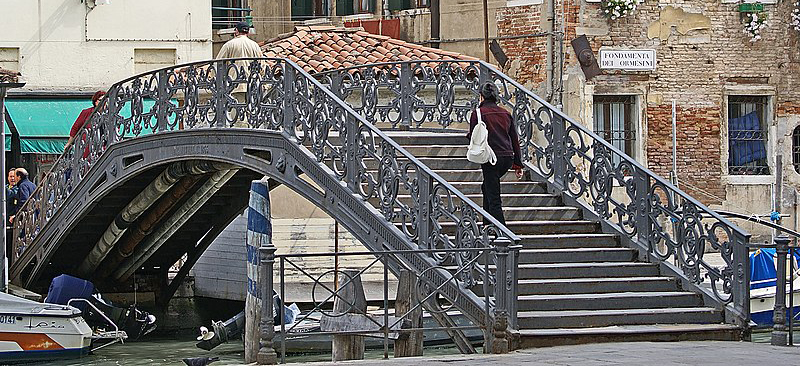Ghetto
Contents |
[edit] Meaning of ghetto
Ghetto is a term with a long history, used to describe areas of a city where minority social groups live, emerging from socio-economic factors but also often as a direct result of city planning with a close relationship to segregation policies. Today it is often associated with and used in relation to inner city areas and certain districts in the US, as referenced by the 1969 Elvis Presley song "In the Ghetto" (first entitled "The Vicious Circle") written by Mac Davis.
[edit] Uses of the word ghetto
The term is sometimes used in British English but not as frequently. Terms that could be associated with the American meaning of Ghetto might include hood, enclave or possibly estate. The US term can be traced back to descriptions, in the late 1800's, of African American neighbourhoods, during and up to the end of segregation through the Civil Rights Act of the 1960's, but the term is still used today. The related term Barrio, a specifically Spanish term is also used in the US, whilst internationally other related terms might include slum, favella and to some extent (relating to planning) the French for suburb or banlieue, meaning an edge of city development with similar characteristics as ghettos.
[edit] History of Ghettos
Historically the term ghetto itself originated from the city of Venice in the early 1500's, describing an area of the city where Jewish people were segregated and restricted to live. The area called the Cannaregio sestiere, was split into the new and of old (Ghetto Nuovo and Ghetto Vecchi), these were connected to the rest of the city only by two bridges, open during the day, to the sound of a ringing bell but then closed and locked with gates in the evening. The areas were controlled by guards and all residents had to return to the area before closing or suffer penalties. (image below Didier Descouens - Ponte de Gheto Novo (Venice) Venice, CC BY-SA 4.0 - 2 May 2007).
[edit] Origins of the term ghetto
The origin of the term is disputed with some saying it relates to the Italian for to discard (gettare) because the area where Jewish people were forced to live at the time was a part of the city which was originally formed from the cities waste or rubbish dump. Others associate it with the Italian for foundry, giotto or geto because the first Jewish quarter was near the cannon foundry of Venice. Yet further explanations relate the term to its meaning as street (Gasse in German), or from borghetto meaning little town or the Hebrew for a divorce document.
[edit] Related articles on Designing Buildings
Featured articles and news
Guidance notes to prepare for April ERA changes
From the Electrical Contractors' Association Employee Relations team.
Significant changes to be seen from the new ERA in 2026 and 2027, starting on 6 April 2026.
First aid in the modern workplace with St John Ambulance.
Ireland's National Residential Retrofit Plan
Staged initiatives introduced step by step.
Solar panels, pitched roofs and risk of fire spread
60% increase in solar panel fires prompts tests and installation warnings.
Modernising heat networks with Heat interface unit
Why HIUs hold the key to efficiency upgrades.
Reflecting on the work of the CIOB Academy
Looking back on 2025 and where it's going next.
Procurement in construction: Knowledge hub
Brief, overview, key articles and over 1000 more covering procurement.
Sir John Betjeman’s love of Victorian church architecture.
Exchange for Change for UK deposit return scheme
The UK Deposit Management Organisation established to deliver Deposit Return Scheme unveils trading name.
A guide to integrating heat pumps
As the Future Homes Standard approaches Future Homes Hub publishes hints and tips for Architects and Architectural Technologists.
BSR as a standalone body; statements, key roles, context
Statements from key figures in key and changing roles.
ECA launches Welsh Election Manifesto
ECA calls on political parties at 100 day milestone to the Senedd elections.
Resident engagement as the key to successful retrofits
Retrofit is about people, not just buildings, from early starts to beyond handover.
Plastic, recycling and its symbol
Student competition winning, M.C.Esher inspired Möbius strip design symbolising continuity within a finite entity.
Do you take the lead in a circular construction economy?
Help us develop and expand this wiki as a resource for academia and industry alike.
Warm Homes Plan Workforce Taskforce
Risks of undermining UK’s energy transition due to lack of electrotechnical industry representation, says ECA.
Cost Optimal Domestic Electrification CODE
Modelling retrofits only on costs that directly impact the consumer: upfront cost of equipment, energy costs and maintenance costs.


























Comments
[edit] To make a comment about this article, or to suggest changes, click 'Add a comment' above. Separate your comments from any existing comments by inserting a horizontal line.